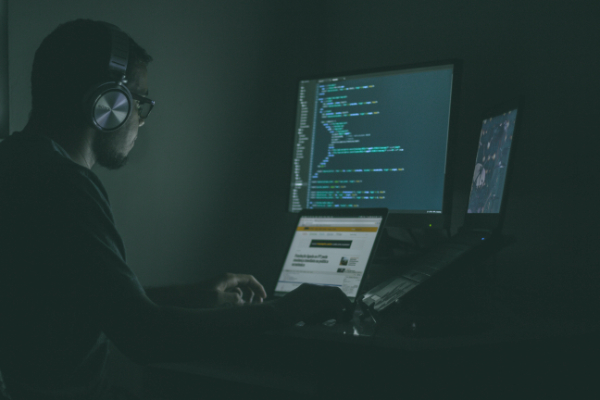National Cyber Security Month: Week 1
It’s National Cyber Security Month so the team here at WJPS are putting together some helpful tips and tricks so you can keep your information secure! Each week we will focus on different aspects of cyber security to help you avoid cybercrime, scams and much more.
This week James will give you a short introduction to Cyber Security and why it is important. Bee will give a list of good practices to follow, and Steven will give advice on how to create a strong password. 
What is Cyber Security and Why is it Important?
“Cyber security is the application of technologies, processes and controls to protect systems, networks, program, devices and data from cyber-attacks.” Which sounds very grand. Cyber Security is something that affects us all, whether it’s storing documents on our computer or sending information via email etc. It’s all about keeping our data safe, keeping other people from accessing it, and ways to protect it if someone does access it (A Cyber Attack). Cyber Security is important for many reasons, not only do we store important documents, financial information and personal emails on our devices, we also have family photos, memories and messages we’d rather not lose!
Good Practices
-
Keep software up to date – Updates often patch security flaws. Hackers take advantage of security flaws to gain access to your personal information, keeping your software up to date prevents hackers from finding and exploiting these flaws.
-
Don’t reuse passwords – If you use the same password, or a variation of the same password for multiple sites. Once a hacker has access to one, they then have access to all your accounts.
-
Check the email address – If you receive an unexpected email, be sure to carefully check the email address it was sent from. Hackers can be clever, so may use an email address similar to one you know. Be sure to check the bit at the end of the email is the same (.com / .co.uk etc). If the email is from a corporation, HSBC for example, don’t hesitate to confirm with your bank by visiting a branch or calling them directly.
-
Install Anti-Virus software – Viruses can slow down your computer, delete files and much more. Using an Anti-Virus software puts up an extra barrier of defense against these things, and helps to block spam, defend against hackers and data thieves.
-
Be careful when clicking links in emails – The most common way hackers gain access to your computer is through links sent in emails. If in doubt about the origin of an email, don’t click any links.
How to Create a Strong Password
A strong password is a unique one. If you use a password over and over again, you run the risk of the password being leaked from one service, and subsequently all your accounts could be compromised.
Coming up with a system to make all passwords unique, or using generated passwords from a password manager, is the best way to keep your accounts secure online. 
 You should never use personal details to create passwords. If you use a family members name, a pet’s name, your date of birth, or any personal information, you run the risk of a targeted attacker guessing your password. Using common passwords such as “password”, or any variation of that will very likely cause your account to be compromised. You can still create memorable passwords that are unique. We have used the password guidance provided by the NCSC.  
You should never use personal details to create passwords. If you use a family members name, a pet’s name, your date of birth, or any personal information, you run the risk of a targeted attacker guessing your password. Using common passwords such as “password”, or any variation of that will very likely cause your account to be compromised. You can still create memorable passwords that are unique. We have used the password guidance provided by the NCSC.  
The basic rundown of how the NCSC suggest making a memorable password is to use three random words, so in their example they use red, house, and monkeys to create “3redhousemonkeys27!”. To make this unique for each site you could make a variation of your password for each website/service, or use a completely new 3 words. We recommend using a reputable password manager to store and, in some case, generate passwords. Avoid writing the password down somewhere that could lead to anyone seeing it. While prices of password manager vary, there are also some available free of charge, although free options may be ‘Self hosted’ and not as accessible on all your devices. 
To increase account security even further, we would recommend setting up two factor authentication (2FA) on accounts that allow it. 2FA means that even if an intruder knows your password, they will need access to a device such as your phone in order to log into your account.  
Published: 04/10/2021 Published by: WJPS
Return to News Page.